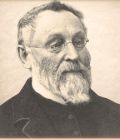COMMON NAME:
CHASTE TREE.
Symptoms
Especially useful in premature old age, which arises in young persons from abuse of the sexual powers (C.).
Mental distraction; self-contempt (A.).
Melancholic and Hypochondriacal mood.
Sad and despairing (B.).
Desire death (Aurum, Lac-C., Nux vomica) Lack of courage (Br.).
ABSENT MINDEDNESS (Alumina, Apis, Bar-C., Cann I., Causticum, Chamomilla, Graphites, Helleborus, Kali-P., Lachesis, Mez., Natrum muriaticum, Nux-M., Platina, Pulsatilla, Sepia, Veratrum).
FORGETFUL (Conium, Kali-P., Nux-v.) (Br.).
Cannot recollect; has to read a sentence twice before he can comprehend (Lycopodium, Acid phosphoricum., Sepia) (A.).
Illusion of smell-herring or musk (Br.).
Retention of urine, from paralysis of the bladder (Causticum, Opium, Sulphur) (Bt.).
Rumbling of flatulence, during sleep.
Thirstlessness, and aversion to all drink.
Nausea, first in the pit of the stomach, later in the stomach, with the sensation as if all the intestines were pressing downward.
Swelling and induration of the spleen, often with soreness, after intermittent fever (Cean.). (G.).
COMPLAINTS OF JADED RAKES (B.).
Corrosive itching of the perineum and difficulty of passing soft motions.
Gleety discharge (Kali bichromicum, Natrum muriaticum, Sepia,) (Br.).
Sexual desire lessened. almost lost; penis so relaxed that voluptuous fancies excite no erection (Calad). (N.).
Impotence, after, frequent attacks of gonorrhoea (Cob., Cub., Hydrastis, Medorrhinum, Sulphur, Thuja; impotence from syphilis-Mercurius) (A.).
THE SEXUAL DESIRE IS SUPPRESSED.
DIMINUTION OF SEXUAL POWERS; THE PENIS IS SMALL AND FLACCID (Bar-C., Berberis, Caps., Lycopodium, Sulphur) AND THE TESTICLES ARE COLD (Aloe Berberis, Bromium, Camph., Caps., Cer-S., Gelsemium, Mercurius, Zincum met.)
COMPLETE IMPOTENCE (Caladium, Calcarea, China, Conium, LYc., Medorrhinum, Nux-v., Phosphorus, Selenium, Sepia, Sulphur) (A.).
Spermatorrhoea in old sinners (F.).
When pressing at stool there is a discharge of prostatic fluid (Agaricus, Anacardium, Calcarea, Causticum, Conium, Hepar, Kali bichromicum, Natrum carbonicum, Natrum muriaticum, Nux vomica, Petroleum, Acid phosphoricum., Phosphorus, Selenium, Sepia, Silicea, Sulphur, Zincum met.,).
DRAWING ALONG THE SPERMATIC CORDS
(All-C., Berberis, Chelidonium, Clem., Conium, Hamamelis, Ind., Mang., Mercurius, Nux vomica, Ox-A.).
ITCHING ON THE GENITAL ORGANS, WITH YELLOW DISCHARGES FROM THE URETHRA (A.).
In old men, who having spent their youth and early manhood in the practice of excessive venery, are just as excitable in their sexual passion at sixty as at eighteen or twenty and yet they are physically impotent, Agnus Castus is a good remedy (F.).
HISTORY OF REPEATED GONORRHOEAS (Thuja) (Br.)
In the female, there is suppressing of the menses, with drawing pain in the abdomen and lack of sexual desire (Sepia).
THERE IS DEFICIENT SECRETION OF MILK IN LYING-IN-WOMEN (Bryonia, Calcarea, Carbo vegetabilis, Causticum, Chamomilla, Hyoscyamus, Iodium, Lac-D., Lachesis, Mercurius, Pulsatilla, Rhus toxicodendron, Secale, Silicea, Sulphur, Urt-U., Veratrum).
Milk entirely suppressed (N.).
LEUCORRHOEA: STAINING YELLOW; TRANSPARENT (Br.).
Leucorrhoea, passing imperceptibly from the very relaxed parts (A.).
Difficulty of passing soft stools (Alumina) (G.). Sometimes stools seem inclined to re-enter the rectum (Silicea).
AGGRAVATION:
From seminal losses.
AMELIORATION:
By scratching (itching); by pressure (aching in the dorsum of the nose).
RELATIONSHIP:
Calad and Selenium follow well after Agnus in weakness of sexual organs or impotence.
ANTIDOTE: Camph.

